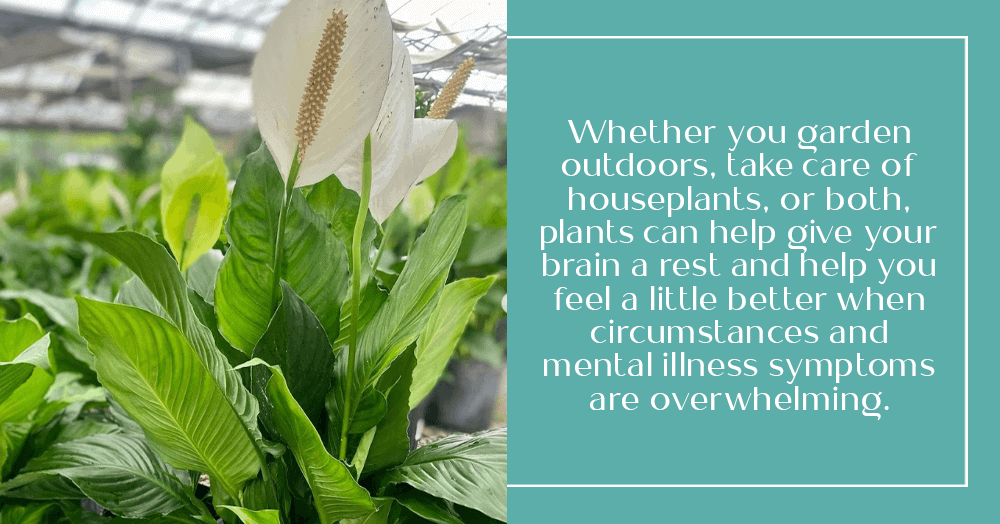I’ve found that house plants greatly improve my mental health. They help me feel more peaceful and happy. This article will show how house plants can lower stress, lift my mood, and clean the air I breathe.
From the calming effects of “indoor gardening” to the healing power of “biophilic design,” we’ll explore how nature at home can change my space. It also nourishes my mental health.
Key Takeaways
- House plants offer a wealth of mental health benefits, including stress reduction and improved mood.
- “Air purification and increased oxygen” from house plants can enhance indoor air quality and wellbeing.
- “Indoor gardening” is a form of “eco-therapy” that can foster a deeper connection with nature.
- “Biophilic design” that brings nature indoors can boost focus and mental clarity.
- Caring for house plants can be a mindful practice that promotes “botanical stress relief” and “horticultural mental wellbeing.”
The Mental Health Benefits of House Plants
Adding house plants to your home can greatly improve your mental health. They help reduce stress and boost your mood. Greenery brings calm and relaxation into your space.
Stress Reduction and Improved Mood
Research shows plants can lower stress hormones. Being around nature calms the mind. It makes you feel more centered.
Caring for a plant also gives you a sense of purpose. This can make you feel more positive and accomplished.
Air Purification and Increased Oxygen
House plants clean the air by removing toxins and adding oxygen. This makes your environment fresher and more energizing. Better air quality can improve your focus and mental clarity.
| Mental Health Benefit | Explanation |
|---|---|
| Stress Reduction | Interacting with plants can lower cortisol levels, the hormone associated with stress, creating a calming effect on the mind. |
| Improved Mood | Caring for plants can provide a sense of purpose and accomplishment, boosting mood and promoting a positive mindset. |
| Air Purification | House plants absorb harmful toxins and release fresh oxygen, creating a more refreshing and invigorating atmosphere. |
| Increased Oxygen | Higher oxygen levels have been linked to improved cognitive function and a heightened sense of well-being. |

“Interacting with nature, whether through gardening or simply being in the presence of plants, can have a profound impact on our mental health and overall well-being.”
Indoor Gardening: A Form of Eco-Therapy
Caring for house plants can be a form of eco-therapy. It lets you connect with nature and feel the mental health benefits. Even in an indoor gardening setting, you can experience these benefits. Nurturing plants can be therapeutic, promoting mindfulness and a sense of purpose.
Nature therapy at home through indoor gardening offers a calming escape from daily stress. Watching a plant grow can reduce anxiety and boost your mood. It’s a simple way to improve your mental wellbeing every day.
Tending to your indoor garden can deepen your appreciation for nature. Observing your plants’ life cycles can teach you about ecosystems and your role in them. This connection to nature can greatly improve your mental and emotional health.
“Engaging with the living world through indoor gardening can be a powerful form of eco-therapy, promoting mindfulness, reducing stress, and enhancing our overall sense of mental wellbeing.”
Whether you have a few potted plants or a large indoor garden, the experience is transformative. By caring for your plants, you’re not just improving your space. You’re also nurturing your mental and emotional health.

Biophilic Design: Bringing Nature Indoors
Biophilic design brings natural elements, like house plants, into our homes. This approach helps us connect with nature and boosts our focus and concentration.
Nature Connection and Improved Focus
Adding biophilic design to our spaces strengthens our bond with nature. This bond improves our mental health, reducing stress and enhancing focus.
- Research shows that biophilic design elements, like house plants, can make us 15% more productive and focused.
- Using natural textures, colors, and shapes in our spaces can calm us down. It lowers our heart rate and blood pressure, helping us stay focused.
By adopting biophilic home design, we create spaces that feel like a mix of indoors and outdoors. This connection with nature improves our focus and cognitive skills.
“Biophilic design is the future of indoor living, as it allows us to harness the restorative power of nature and bring it into our daily lives.”
Plant Care Wellness: A Mindful Practice
Caring for houseplants is a calming and mindful activity that boosts mental health. It gives us a sense of purpose and helps reduce stress. This practice is key to horticultural mental wellbeing.
Botanical Stress Relief
Getting into plant care wellness can fight off today’s stress. Watering, pruning, and repotting plants calm our minds. They help us forget our daily worries.
Horticultural Mental Wellbeing
Looking after plants connects us to nature, tapping into our biophilic side. This mindful practice improves our mood and focus. It makes us feel better overall, as we connect with the living plants around us.

“Caring for plants can be a deeply nourishing and restorative experience, one that grounds us in the present moment and reminds us of our place within the natural world.”
Whether it’s a big indoor garden or a few plants on the windowsill, botanical stress relief and horticultural mental wellbeing are great for our mental health. They help us feel more connected to nature and improve our plant care wellness.
Mood-Boosting Houseplants for Anxiety Reduction
I’ve found that mood-boosting houseplants can really help with anxiety. Some plants have been shown to reduce stress and improve mood. Adding these plants to my home has made a big difference in how I feel.
Spider plants are great for cleaning the air and easing anxiety. Their long, green leaves make me feel calm and centered. The peace lily also helps by lowering stress hormones in the body.
Succulents, like the jade plant, are easy to care for and help reduce anxiety. They’re perfect for anyone who wants to enjoy the benefits of indoor plants. Being around these plants makes me feel more at peace and helps me handle stress better.








